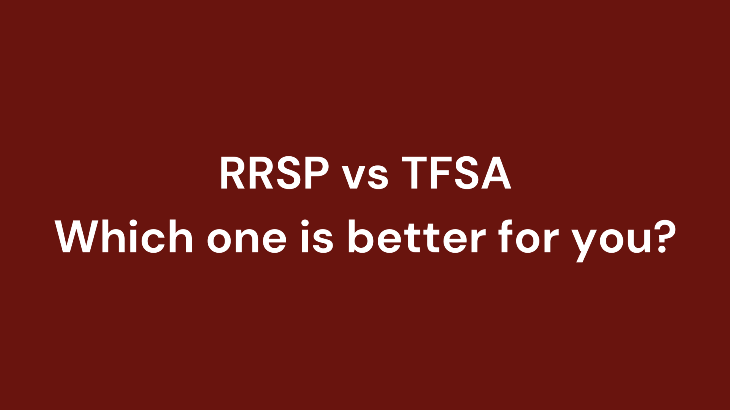I am a low wage earner, as such I hardly ever invest in my RRSP (Registered Retirement Savings Plan). As a low income earner there is no tax advance to defer my taxable income until retirement; my income is low enough that I pay very little in taxes.
In general, if you are a low earner, you are better off putting all your savings in your TFSA (Tax Free Savings Account) instead of your RRSP. However, last year, I earned a bit more than usual because I had some government assistance, so in order to reduce my income taxes, I transferred some money to my RRSP.
When a person puts money in their RRSP they defer the money they earned this year to a year into the future.
Since next year my income will be a bit lower, I will be able to take money out of my RRSP and pay taxes at lower tax rate.
As a rule of thumb, if your income is less than $30,000, there is very little benefit into putting money into your RRSP. You might run the risk of being a higher earner during retirement than during your working years and you might pay more in taxes.
The decision to invest in a Tax-Free Savings Account (TFSA) or a Registered Retirement Savings Plan (RRSP) depends on your personal financial situation and goals. Here are some factors to consider when deciding whether to invest in your TFSA or RRSP:
- Tax bracket: If you are in a higher tax bracket now than you expect to be in retirement, it may be more beneficial to invest in your RRSP. Contributions to an RRSP are tax-deductible, which means you can reduce your taxable income and potentially lower your tax bill. In retirement, when you withdraw funds from your RRSP, you will likely be in a lower tax bracket, so you will pay less tax on the money you withdraw.
On the other hand, if think you will be at a higher tax during retirement than during your working years, stop contributing to your RRSP, you are shooting yourself in the foot. - Short-term vs. long-term goals: If you have short-term financial goals, such as saving for a down payment on a house, it may be better to invest in your TFSA. Withdrawals from a TFSA are tax-free, so you can withdraw money at any time without incurring tax penalties. On the other hand, withdrawals from an RRSP are taxed as income, and you may have to pay additional fees if you withdraw funds before retirement.
- Contribution limits: Both TFSAs and RRSPs have annual contribution limits, so it’s important to consider how much you can contribute each year. If you have already reached your RRSP contribution limit, you may want to invest in your TFSA instead.
My financial priority every year is to contribute the maximum allowed in my TFSA (this year 2023 $6,500) and the rest of my savings I invest in my non-registered accounts. - Estate planning: If you are concerned about leaving a tax-free inheritance to your beneficiaries, a TFSA may be a better choice. When you pass away, the funds in your TFSA can be transferred to your spouse or common-law partner tax-free. If you name someone else as the beneficiary, the funds will be paid out tax-free to your estate.
Overall, it’s important to evaluate your personal financial situation and goals before deciding whether to invest in your TFSA or RRSP.
